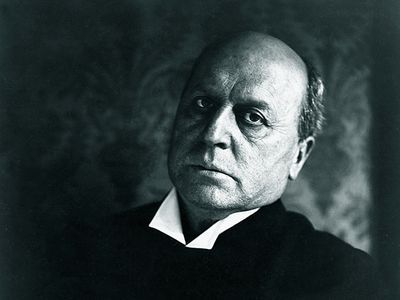The Jamesian scene

Henry James, c.1910. Photo: �� Corbis
By MICHAEL CAINES
It is a century, anyone might say in that hazily accurate way, since the death of Henry James, but today, Thursday March 3, 2016, we may say in confidence of expressing ourselves with exactitude, a whole century since the funeral of the Master took place, on March 3, 1916, at Chelsea Old Church. (I have been reading The Sacred Fount, so apologies for the inept but, I assure you, involuntary essay in pastiche.) This afternoon, indeed, almost to the hour, that sombre occasion is to be commemorated at the same blessed venue that was formerly, in the words of Professor Philip Horne ��� who writes poignantly in this week's TLS of James's final illness and the funeral itself ��� "Sir Thomas More's private chapel". The author's friends had "lobbied" for Westminster Abbey, but the family took a "more dignified" line. Amid the distinguished congregation, one mourner, Rudyard Kipling, could describe the funeral as "the most touchingly beautiful service I have ever heard" . . . .
James contributed to the TLS on a few occasions; and it's strange to think of him writing on, say, Balzac anonymously, as the paper then demanded, yet in that irremediably distinctive way. As far as the more discerning sort of reader was concerned, it was perhaps possible to make out the identity of the author. TLS readers had indeed, since the first year of the paper's publication, been treated to regular updates on James's latest works ��� from The Wings of the Dove onwards, and courtesy of reviewers such as Walter de la Mare and the Jamesian expert Percy Lubbock ��� and the peculiar nature of their appeal, the exquisite uncompromised splendour of their Art. (I have a soft spot, though, for Thom Gunn's "Jamesian", which reduces the whole business to two lines: "Their relationship consisted / Of discussing if it existed".) And there was a debate already well under way concerning the early, middle and late periods, which was thus brought into an imaginary salon or debating chamber after James's death in a review of The Ivory Tower (a novel he didn't live to finish):
"There are generally three parties or factions present: the larger group, which praises all the bright array of cultivated, lucid, readable novels and stories written in his earlier period, Daisy Miller, Roderick Hudson and the rest. A smaller and more select faction expresses appreciation also of the books of the middle time. But both groups combine to deplore what they consider the sad falling-off of his last period; the disintegration, as they think it, of his style, and the general lapse into difficulty and diffuseness which makes, they declare, books like The Awkward Age, The Ambassadors and The Golden Bowl practically unreadable. And then, solitary among them but undismayed, the enthusiast takes up the theme, maintaining that it is precisely in these works, and only in these, that Henry James's genius found complete expression ��� an expression so new, so original, so personal, so surprising that by comparison his earlier works all sink into insignificance."
There has been much else to debate since those times, of course, although in the face of this question about James's artistic development I now recall that a Jamesian enthusiast possibly of the last stripe would kindly recommend Daisy Miller as a more appropriate starting point for the uninitiated than, say, The Ambassadors. (Does anybody strongly support alternative suggestions?) That later work prompted the TLS's reviewer to write: "Mr James demands unswerving and intense attention from his readers. Skip half a page and the next page or two are at once reduced to gibberish".
By contrast, I would say, if you don't read anything else today at all, skip to the final paragraph of "Refugees in Chelsea", an essay by James published in the TLS shortly after his death ��� all you may need to know in advance, I hazard, by way of context, is that he had "flung himself into the war effort", as Professor Horne writes, "caring for Belgian refugees, visiting wounded soldiers, serving as honorary president of the American Volunteer Motor Ambulance Corps". It was a cause he cared deeply about ��� as that last paragraph alone is enough to demonstrate ��� deeply enough, indeed, for him to adopt British citizenship in the summer of 1915. And as Horne goes on to suggest, the strain did not do the old man any good ��� crass though the thought may be, it is not entirely implausible to think of Henry James as yet another victim of the First World War, albeit one whose death took place not in No Man's Land but in Chelsea.
Peter Stothard's Blog
- Peter Stothard's profile
- 30 followers



